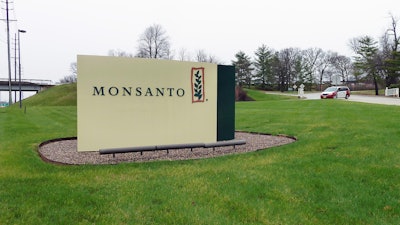
A lawsuit filed against Monsanto over a controversial weed killer uncovered documents that showed a close relationship between a top Environmental Protection Agency regulator and company executives.
An April 2015 email from Monsanto regulatory official Daniel Jenkins to his colleagues indicated that Jess Rowland, the EPA regulator, sought to undermine a potential probe of glyphosate, National Public Radio reports.
The International Agency for Research on Cancer, an arm of the World Health Organization, weeks earlier ruled that glyphosate — the key ingredient in Monsanto's RoundUp and other herbicides — was a probable human carcinogen.
Monsanto sharply disputed the findings and said that they were "starkly at odds with every credible scientific body that has examined glyphosate safety." The IARC decision, however, sparked numerous lawsuits against the agribusiness giant -- including one filed in California that blamed cancer cases on glyphosate exposure.
That lawsuit — which also accused the company of colluding with the EPA — uncovered the internal Monsanto emails detailed in reports this week.
The EPA and an office of U.S. Health and Human Services Department were in the process of evaluating glyphosate when the IARC decision was published. According to Jenkins' email, Rowland hoped to establish collaboration between the two studies and quipped, "If I can kill this I should get a medal."
Bloomberg reported that the Agency for Toxic Substances and Disease Registry never published its study. The EPA, meanwhile, determined last year that glyphosate was "not likely to be carcinogenic to humans."
That finding was echoed by agencies from the UN and the European Union, including the European Chemical Agency this week. California, however, began listing the chemical as a carcinogen this month despite a legal fight from Monsanto.
Jenkins reportedly wrote in another email months later that Rowland, who was set to retire from the EPA, could be of use as the company continued to defend the herbicide. Internal Monsanto emails also outlined its efforts to combat the IARC finding, including a suggestions that the company recruit external scientists to write reports or "ghost-write" its own paper.
Monsanto officials, in an interview with Bloomberg, characterized the emails as a "natural flow of information" between the company and its regulator — and suggested that it would be highly unlikely that the company could manipulate the EPA under the Obama administration.






















